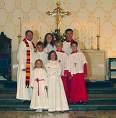
Baptist
Cromwell Baptists
It is recognised that there was a Baptist presence in Perth by 1653. Baptist churches in England had been established in the first half of the century. Cromwell had set up 18 garrison towns and four citadels at Leith, Ayr Inverness and Perth. Governor Overton was a convinced Baptist and stationed at Perth.
The governor of Leith was also a Baptist. In England non conformists were seen as troublesome as opposed to Scotland where matters were seen to be lighter in terms of threat to the king. Cromwell's men were in the habit of intercepting mail to check for insurrection in the ranks. In 1655 a pamphlet was published re baptised churches at St Jounstoune( Perth's old name) Leith and Edinburgh. The purpose was to set out the churches commitment to the king and country and dispel concerns.
On the departure of Cromwell's men the Baptist witness was very small and for 100 years little progress was made.










